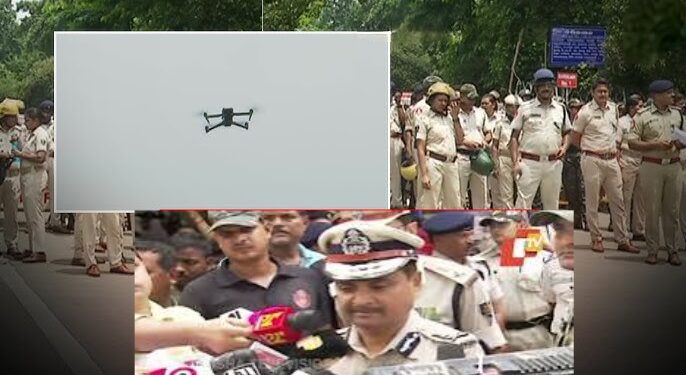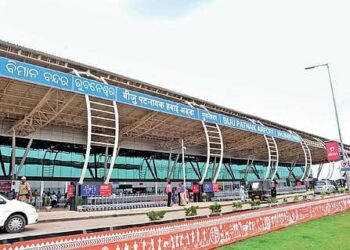Security has been heightened across Odisha as a 12-hour statewide bandh, led by the Congress and supported by seven other opposition parties, unfolds in response to the tragic death of a girl student from Balasore’s Fakir Mohan Autonomous College.
The student died following a self-immolation attempt, allegedly after sustained harassment by a faculty member.
Beginning at 6 AM, the bandh has partially disrupted normal life across cities, including Bhubaneswar, Cuttack, and Sambalpur.
AI-Powered Surveillance and Plainclothes Policing
In Bhubaneswar, Commissionerate Police launched extensive security measures, deploying drones and high-resolution AI cameras at key locations like intersections, marketplaces, and government buildings.
Security personnel—both in uniform and plain clothes—were stationed at sensitive zones such as Lok Seva Bhawan, Odisha Legislative Assembly, Rajiv Bhawan, and the residences of political leaders. Monitoring is being done through a central control room under the DGP’s supervision, with senior officers leading field operations.
Twin City Police Commissioner Sanjeeb Panda stated that while peaceful protest is a democratic right, any attempt to block railway tracks or incite violence would be met with strict legal action.
Widespread Disruptions but No Violence
While no major incidents of violence were reported in the first hour, the bandh’s impact was visible in closed shops, reduced vehicular movement, and shut educational institutions across urban centres. Protesters staged picketing and road blockades in multiple regions.
Essential services—including hospitals, medical stores, and ambulances—have been kept out of the bandh’s scope.
Opposition Demands Justice
The opposition parties are demanding strict action against those responsible for the student’s death and accountability from the state government. Congress leaders said the bandh is intended to amplify public pressure and ensure justice is not delayed.





























